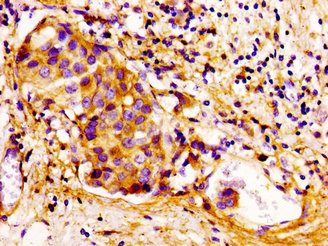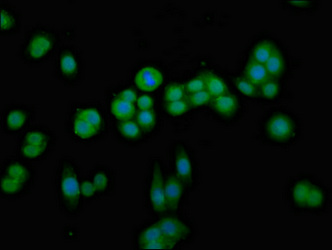Full Product Name
Rabbit anti-Homo sapiens (Human) CDKN3 Polyclonal antibody
Alternative Names
CDI1 antibody; Cdk associated protein phosphatase antibody; CDK2 associated dual specificity phosphatase antibody; CDK2-associated dual-specificity phosphatase antibody; CDKN3 antibody; CDKN3_HUMAN antibody; CIP2 antibody; Cyclin dependent kinase inhibitor 3 antibody; Cyclin dependent kinase interacting protein 2 antibody; Cyclin dependent kinase interactor 1 antibody; Cyclin-dependent kinase inhibitor 3 antibody; Cyclin-dependent kinase interactor 1 antibody; Cyclin-dependent kinase-interacting protein 2 antibody; FLJ25787 antibody; KAP antibody; KAP1 antibody; Kinase associated phosphatase antibody; Kinase-associated phosphatase antibody; MGC70625 antibody; OTTHUMP00000178991 antibody
Immunogen
Recombinant Human Cyclin-dependent kinase inhibitor 3 protein (1-172AA)
Immunogen Species
Homo sapiens (Human)
Conjugate
Non-conjugated
The CDKN3 Antibody (Product code: CSB-PA005096LA01HU) is Non-conjugated. For CDKN3 Antibody with conjugates, please check the following table.
Available Conjugates
| Conjugate |
Product Code |
Product Name |
Application |
| HRP |
CSB-PA005096LB01HU |
CDKN3 Antibody, HRP conjugated |
ELISA |
| FITC |
CSB-PA005096LC01HU |
CDKN3 Antibody, FITC conjugated |
|
| Biotin |
CSB-PA005096LD01HU |
CDKN3 Antibody, Biotin conjugated |
ELISA |
Purification Method
>95%, Protein G purified
Concentration
It differs from different batches. Please contact us to confirm it.
Buffer
Preservative: 0.03% Proclin 300
Constituents: 50% Glycerol, 0.01M PBS, pH 7.4
Tested Applications
ELISA, IHC, IF
Recommended Dilution
| Application |
Recommended Dilution |
| IHC |
1:20-1:200 |
| IF |
1:50-1:200 |
Storage
Upon receipt, store at -20°C or -80°C. Avoid repeated freeze.
Lead Time
Basically, we can dispatch the products out in 1-3 working days after receiving your orders. Delivery time maybe differs from different purchasing way or location, please kindly consult your local distributors for specific delivery time.
Usage
For Research Use Only. Not for use in diagnostic or therapeutic procedures.








